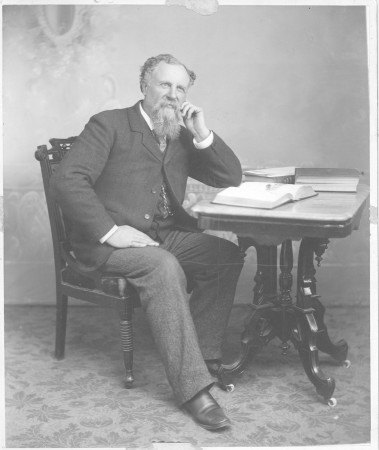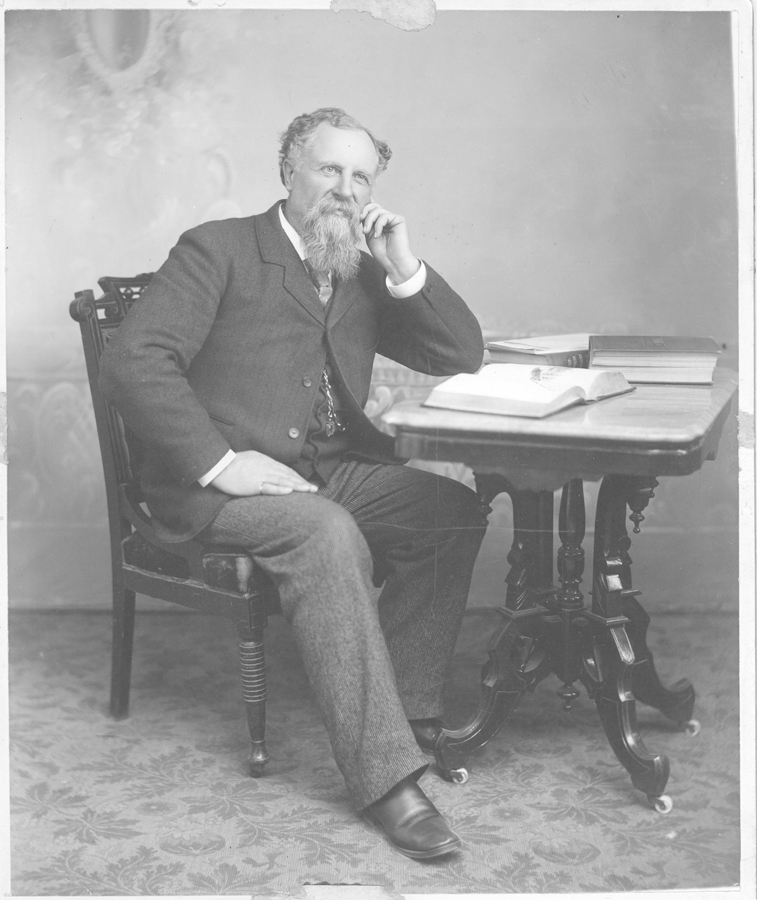The Short Tenure of Laramie’s First Mayor
By
Kim Viner
Laramie Plains Museum
Seven city officials were selected by a group of townspeople at a meeting on May 2, 1868, but in subsequent weeks officers of the new government began resigning. The criminals thieved and killed and brazenly flouted any law or decency, without much to stop them. By autumn, the townsfolk were fed up, formed vigilance committees and took dramatic action on the night of Oct. 18 to round up and apply swift justice.
The first summer was turbulent, with little or no effective law enforcement. Melville C. Brown was elected mayor, but he resigned after six weeks due to intimidation by the lawless element and his colleagues ineptitude. In the fall, a vigilance committee drove out the worst of the outlaws (a few hangings helped!) and the town settled down. One member of that vigilance committee was N. K. Boswell, who became the first sheriff in Albany County (1869).
The Short Tenure of Laramie’s First Mayor
It is a widely-repeated story that Laramie’s first mayor, Melville C. Brown, was elected on May 12, 1868 and resigned after three weeks in office because the town was “ungovernable.” But, is the story true?
Brown was born in Maine on August 18, 1838. At about age 20 he travelled to California to join his father, Enoch, in his mercantile and mining businesses. After four years there, he moved on to Idaho where he studied law, served in several local government positions and in the Idaho Territorial Legislature.
In October 1867, he moved to Cheyenne, Dakota Territory, to establish a law practice. After a short five months he decided to continue on to Laramie City. Most sources indicate the 30-year-old Brown arrived in Laramie on May 1, 1868.
Shortly thereafter, the events of the story noted above unfolded. While it sounds good, the truth is a bit more mundane. Brown’s own resignation letter which was published in Laramie’s Frontier Index on June 16, 1868 states:
“In consideration of the fact of the incompetency of many of the officers selected on the 2d of May, A.D. 1868, in conjunction with myself, and the incapacity and laxity of said officers in the discharge of their duties, I find it impossible for me to administer the city government in accordance with my views of the necessity of the case, and therefore thanking the people of the city of Laramie for honoring me with the highest position in their gift, and for their co-operation and in the somewhat difficult administration of a provisional city government, I respectfully tender my resignation.” The letter was dated June 12, 1868. The word “ungovernable” does not appear (but it does display a lawyer-like nearly unintelligible sentence).
Short articles in the Cheyenne Leader and Frontier Index papers also clearly indicate that Brown was elected to head the provisional government earlier than May 12, 1868, so he actually served a little over 5 weeks in office.
It appears that the well-known, but incorrect, story was first written by J.H. Triggs in an 1875 Laramie city directory. While Triggs’ other information is generally correct and supported by contemporary newspapers, in this case Triggs got it wrong. Unfortunately he does not give any information on his sources for dates or the reason Brown resigned. It is conceivable that Brown was bemoaning the other officers because they tried but could not deal effectively with the ongoing violence. But it seems more likely that, based on his own words, he felt they were just not capable of doing their jobs. So, he quit.
All sources agree that the citizens of Laramie gave up on any attempt to form a government for several months. It was not until October 1868 that another election was held with L.B. Chase chosen as mayor. In the interim the town was ruled over by a gang of “rowdies” who generally did as they pleased to ensure their unlawful and profitable activities were conducted without interruption.
Brown for his part remained in Laramie for many years and served in numerous government capacities, including as president of the Wyoming Constitutional Convention which convened in 1889; it drew up the first constitution for the new state. He left Laramie in 1900 when he was appointed by President McKinley to be a federal judge in Alaska. He resigned that post under somewhat mysterious circumstances in 1904 and moved to Seattle, Washington, to practice law. He returned to Laramie in late 1907 and recommenced his law practice. He remained in Laramie until his death on April 9, 1928.
Kim Viner, “The Short Tenure of Laramie’s First Mayor,” Volunteer at the Laramie Plains Museum


